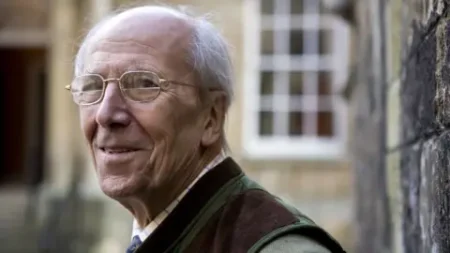In Birmingham, a controversy has erupted concerning accusations made by the city’s council leader, John Cotton, against the Unite union amid an ongoing strike by bin workers. Cotton charged the union with “targeting” the school attended by the children of Majid Mahmood, who is the council member directly responsible for waste management. He has since sought an apology from Unite for what he perceives as inappropriate actions against the families of elected officials, particularly referencing the union’s involvement with the school linked to his colleague’s children.
Unite has strongly refuted these allegations, contending that their visit to the school was part of a broader campaign to garner support from parents for the striking workers. They maintained that the presence of Union members at the school was coincidental and not an intentional effort to involve families of council members in the dispute between the workers and the council.
The timing of this incident is significant, as it aligns with the council’s response to the prolonged bin strike, which is now entering its 15th week. The strike has caused substantial disruption in Birmingham, culminating in significant rubbish accumulation across the city. This situation has raised concerns about public health and safety, as well as the implications for the waste management service delivered to citizens.
During an interview with the BBC, Cotton expressed his belief that it is essential for elected officials to be held accountable. However, he was unequivocal in stating that the families of those officials should remain out of any disputes or public scrutiny. He emphasized that bringing families into political conflicts is unacceptable. Cotton noted, “I think it’s absolutely out of order that the families of people are being targeted.” His comments highlight a growing concern regarding the ethics of strategies employed during labor disputes, especially when they involve personal and family lives.
In response, Unite has articulated that its members were simply conducting legitimate activities aimed at engaging with the community. They pointed out that visits to schools to discuss the strike and collect signatures of support are standard practices that aim to promote dialogue between the union and local families. The union’s representatives mentioned that their engagements have been met with a warm reception from parents and that no intention of targeting specific families existed.
Interestingly, the union’s legal counsel has issued statements asserting that their actions do not reflect a breach of ethical conduct within the labor movement. They assert that the suggestion of targeting families is fundamentally at odds with the values held by most union members. Unite members, they claim, prioritize the respectful treatment of all community members during their outreach activities.
As tensions rise, this incident serves as a fitting backdrop to the ongoing disputes in Birmingham. The city is currently grappling with a significant waste management crisis, exacerbated by the prolonged industrial action. The council is facing criticism not only from union leaders but also from residents affected by the refuse accumulating on the streets. This ongoing strike has drawn focus not only on labor relations but also on municipal governance and public service delivery during times of crisis.
This conflict exemplifies the broader struggles inherent in the labor movement, particularly in situations where family lives intersect with public accountability. Johnson Cotton’s calls for an apology from Unite reflect significant underlying issues about the fate of local governance and community relationships during times of labor unrest. The outcome of this situation could set precedents in terms of the behavior expected from unions and politicians as they navigate complex labor relations amidst public outcry and the need for accountability.











